Education
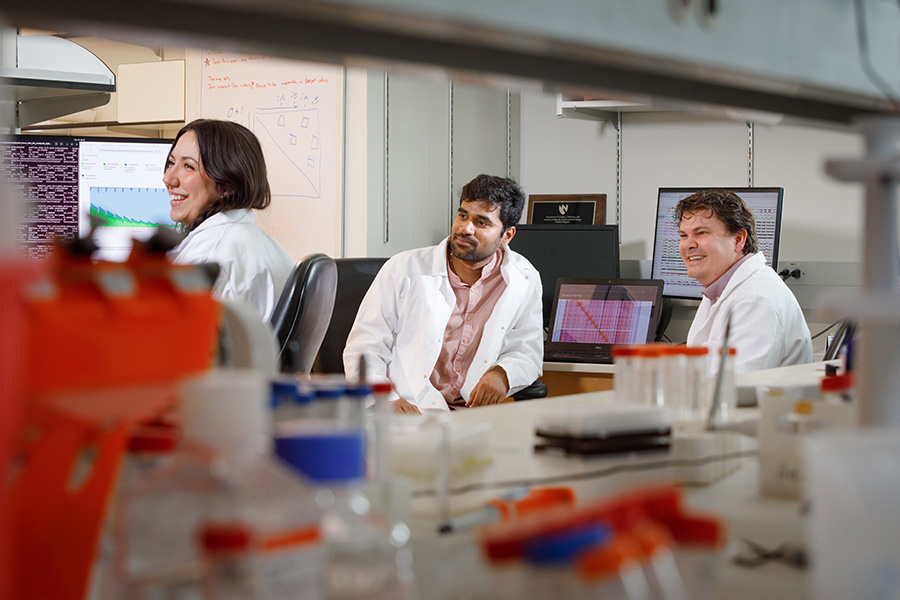
We are dedicated to training graduate students in the basic sciences. Our dedicated faculty prepares scientists for careers in research, academia, teaching, biotechnology, and various other fields.
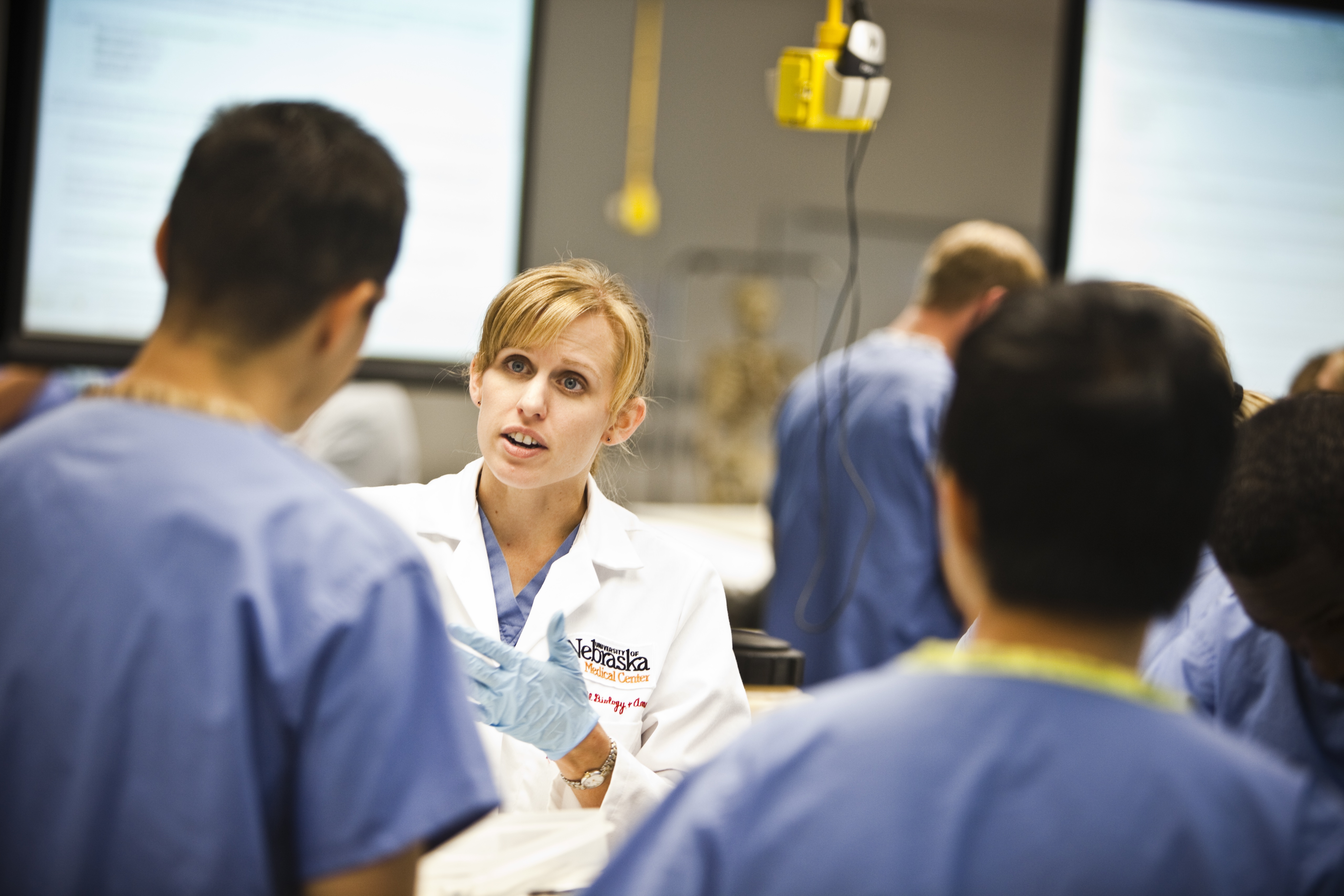
We train the next generation of health science professionals through comprehensive education in anatomy, histology, embryology, and neuroanatomy.
The Department of Genetics, Cell Biology, and Anatomy offers graduate training programs in a variety of disciplines such as genetics, molecular biology, cell biology, anatomy, bioinformatics and translational medicine.
These educational opportunities within the department are organized into four tracks, which include two doctoral and two master's level degrees.
The department hosts the Molecular Genetics and Cell Biology Doctoral program, which is part of the Interdisciplinary Graduate Program in Biomedical Sciences at UNMC. We also offer an Anatomy Teaching Track PhD program in which students complete a research-based PhD along with educational training in the anatomical sciences (gross anatomy, histology, and neuroanatomy). A thesis-based (two-year) or non-thesis-based (one-year) Masters of Medical Anatomy is available as well as a research-based MS.
Each track and program has a distinct purpose. The research track PhD program is designed to provide a comprehensive research and classroom experience in genetics and cell biology for students who wish to pursue careers as independent researchers and/or educators at the university level. The anatomy teaching track PhD program is designed to train students to teach in the anatomical sciences as well as conduct robust biomedical and educational research. The MS in Medical Anatomy program is designed as a stepping stone to professional school or the anatomy teaching track PhD program. By contrast, the research-based MS program is designed for students who wish to explore a career in research and are considering a research-based PhD program.
Graduate Education Programs
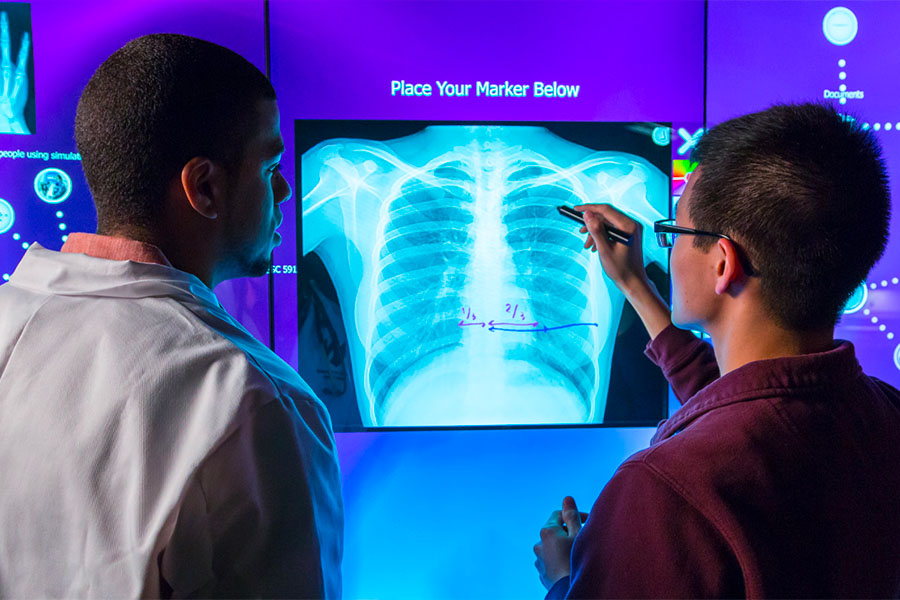
PhD in Bioinformatics & Systems Biology
The Bioinformatics and Systems Biology doctoral program addresses questions in biomedical research, from novel algorithm development to the application of bioinformatics tools for innovative research.
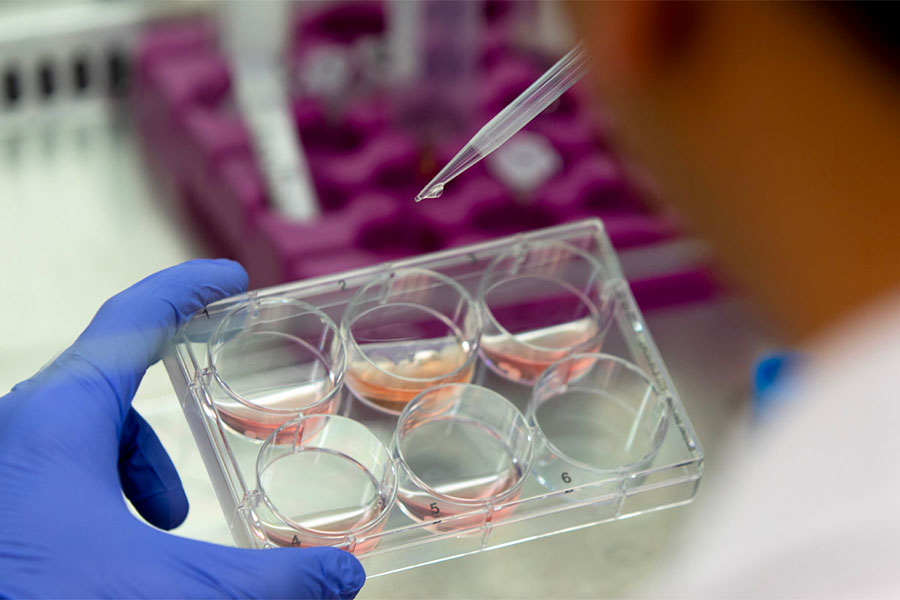
PhD in Molecular Genetics & Cell Biology - Research Track
In this doctoral program, students engage in rigorous, interdisciplinary research to explore the cellular, molecular and genetic foundations of normal development and disease pathogenesis.
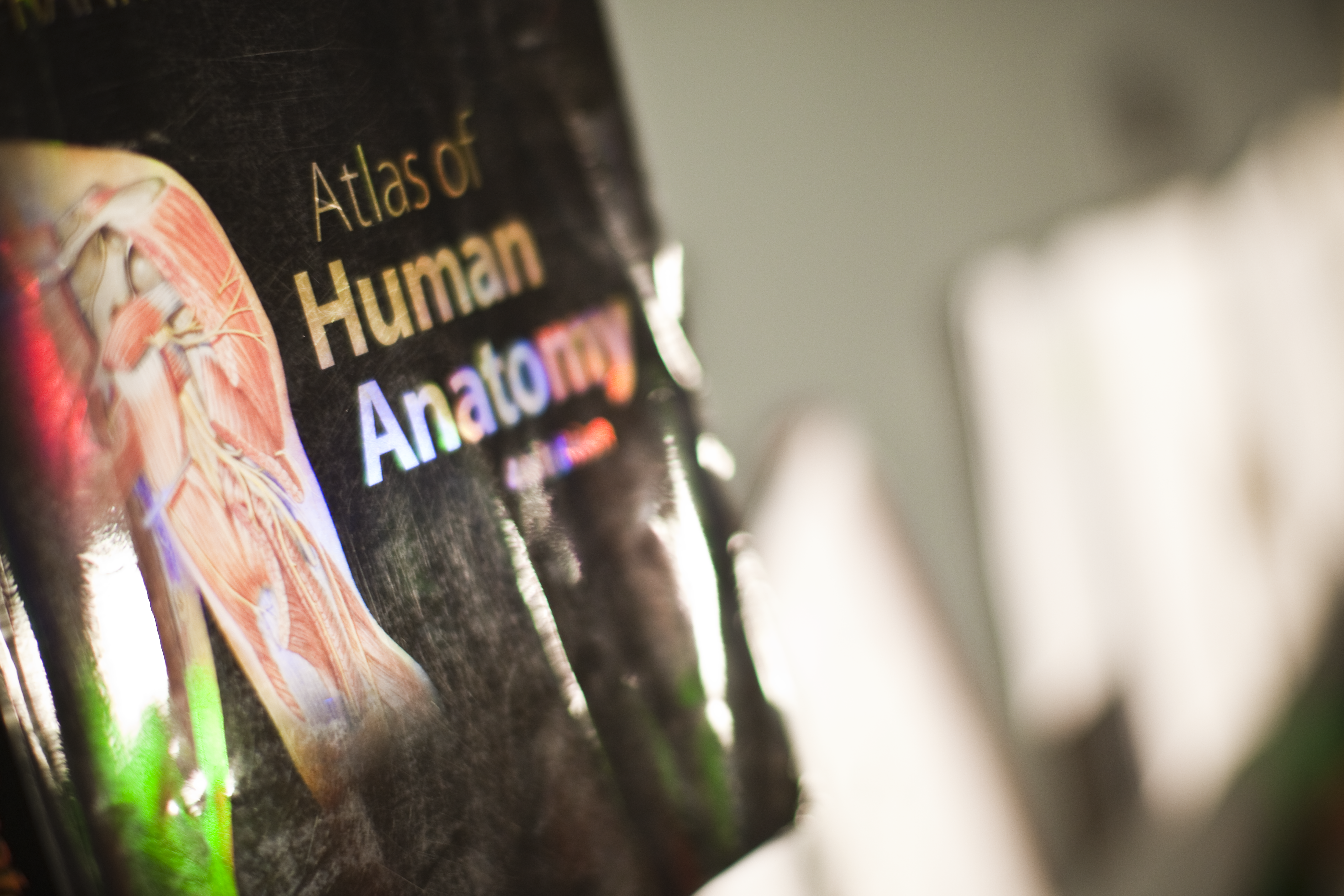
PhD in Molecular Genetics & Cell Biology - Anatomy Teaching Track
In this doctoral program, students undertake a research-oriented PhD while also receiving educational training and participating in practicums focused on anatomical sciences such as gross anatomy, histology, and neuroanatomy.
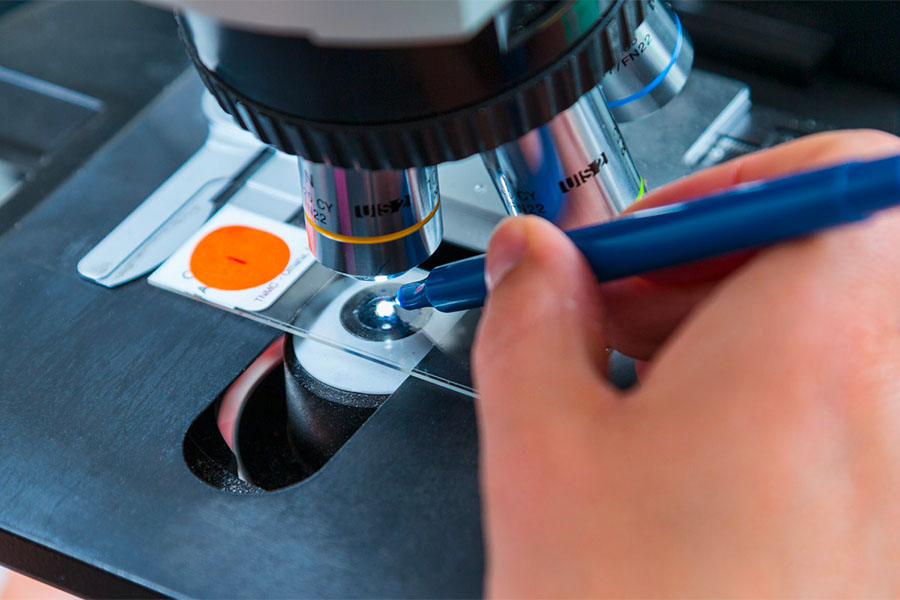
MS in Molecular Genetics & Cell Biology
The Molecular Genetics and Cell Biology Master of Science is a two-year program that includes coursework and research, designed to enhance a career in biomedical research, medicine, or dentistry.
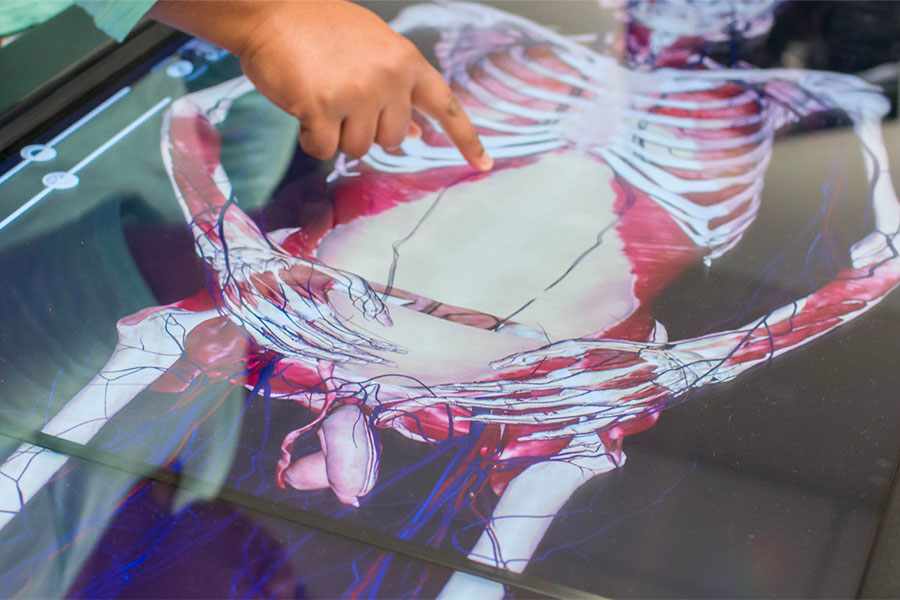
MS in Medical Anatomy
The Master of Science in Medical Anatomy program is designed for individuals aspiring to health science careers to better prepare themselves for professional studies in medicine, physician assistant, education, or research.
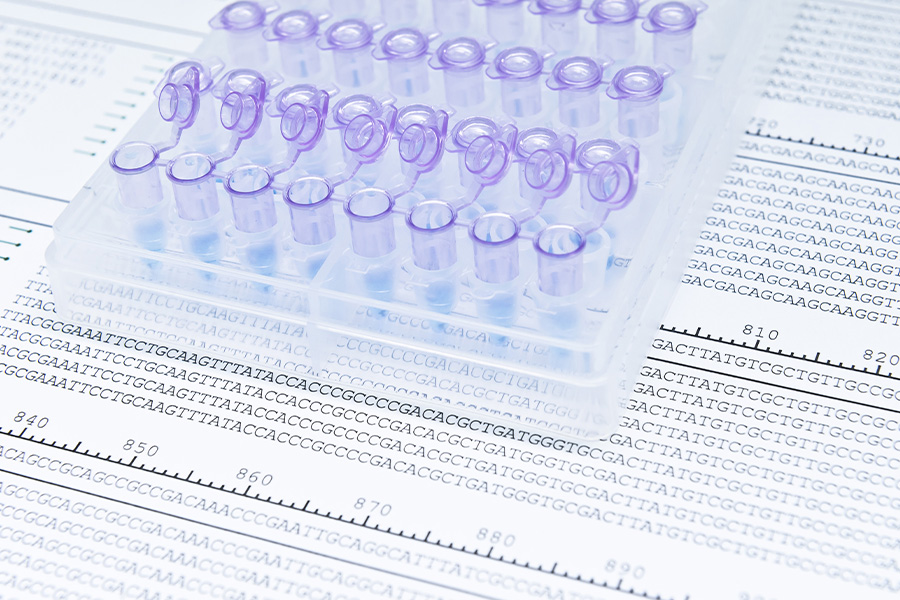
DECODE Training Program
The Developing Experts in Computation, Omics, and Data Exploration training program offers a unique blend of academic courses and industry-inspired training to prepare students as future leaders in biomedical research.
Professional Education Programs
The Department of Genetics, Cell Biology, and Anatomy implements a dynamic approach to teach anatomy, histology, embryology, and neuroanatomy to medical and physician assistant students. Through a combination of didactic lectures, hands-on laboratory sessions, interactive multimedia resources, and clinical correlations, students gain a comprehensive understanding of the structure and function of the human body at multiple levels of organization.
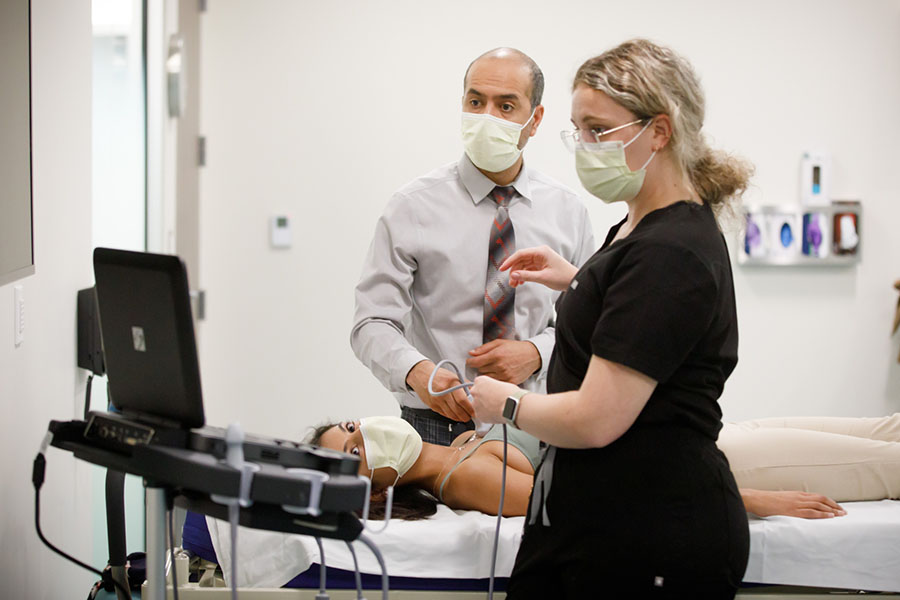
Medical Education
Our three-phase curriculum – from foundations of medicine to clinical application and career preparation – employs simulation and clinical experiences that highlight interprofessional work.
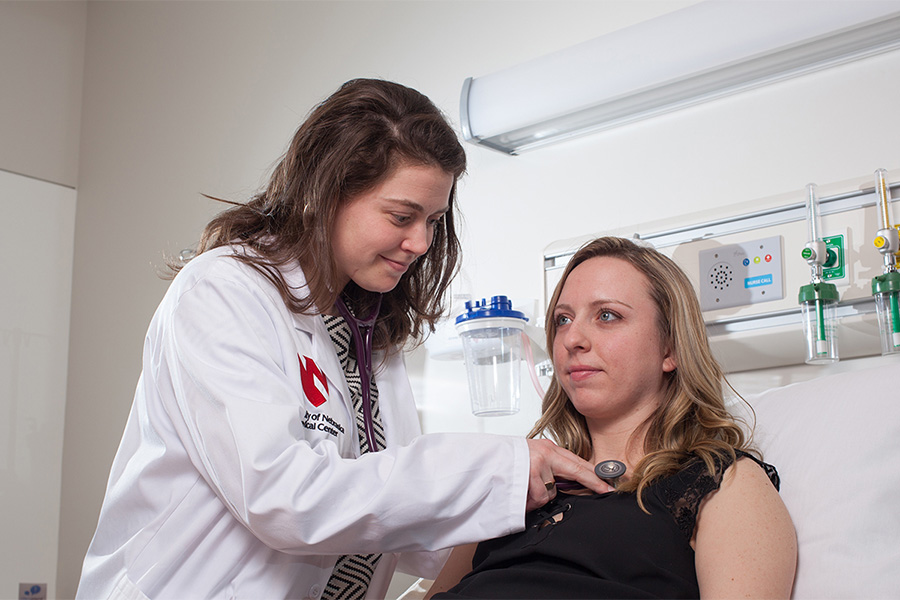
Physician Assistant
Discover a rewarding career in medicine as a physician assistant. UNMC's top-rated degree program will take you there.
Summer Course
The Department of Genetics, Cell Biology, and Anatomy offers a summer intensive course focusing on human gross anatomy. The organization of the human body and the way in which anatomical relationships serve as a basis for function are studied in this course. The medical aspects of the structural and functional organization of the human body are also a focus of attention. Notably, the course mirrors the curriculum delivered to our professional students and offers transferable credits to other academic institutions and programs.
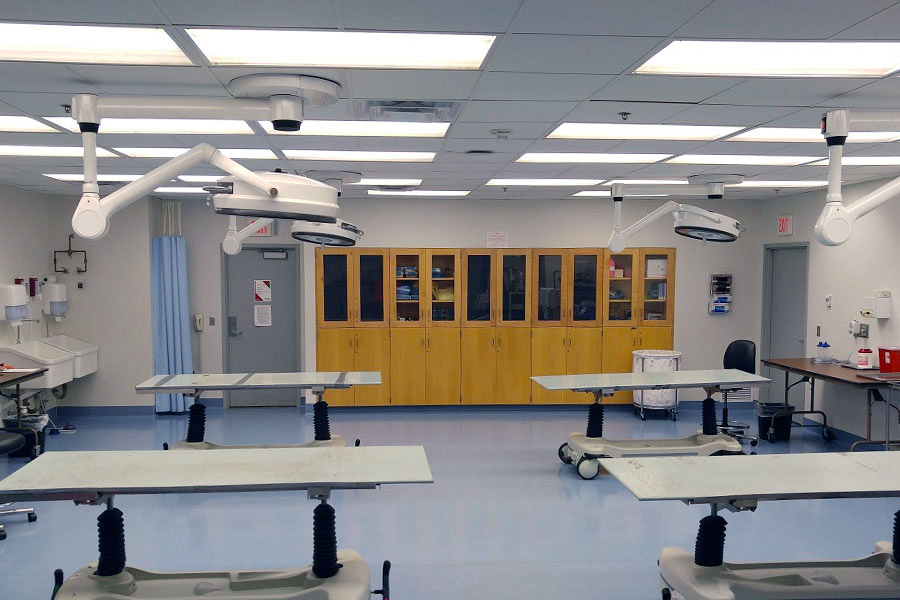
Advanced Anatomy Laboratory
The Advanced Anatomy Laboratory for research, education, and clinical skills was established in 2008 with the goal of improving patient care by providing healthcare professionals with an environment to review and explore anatomy pertinent to their particular discipline.